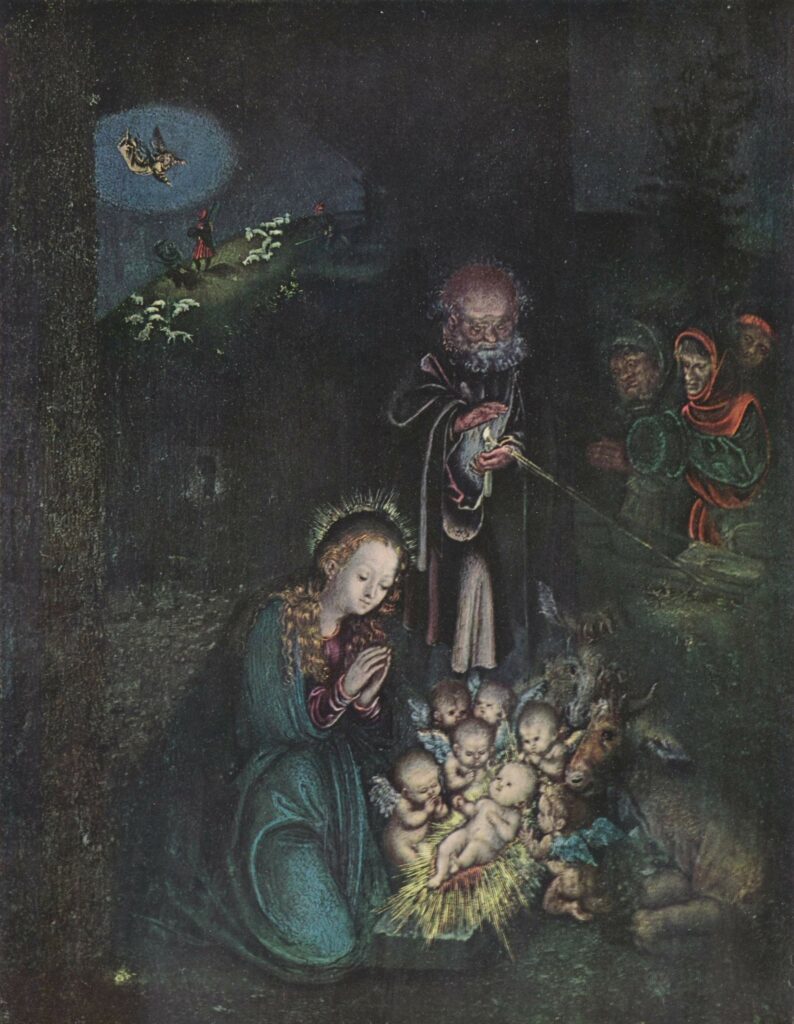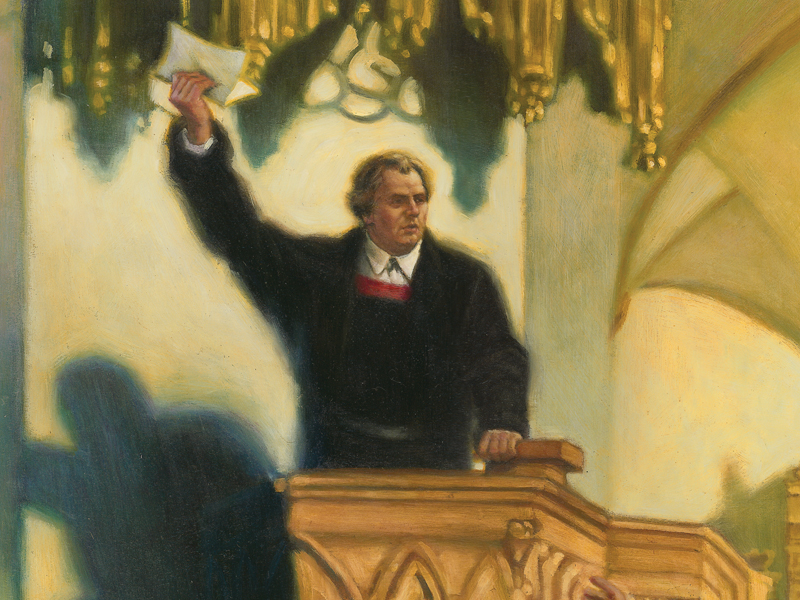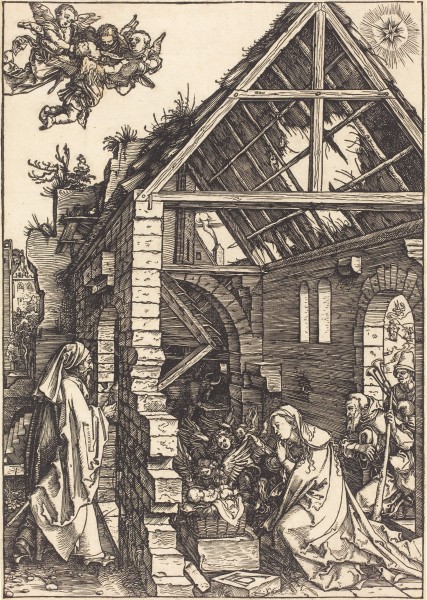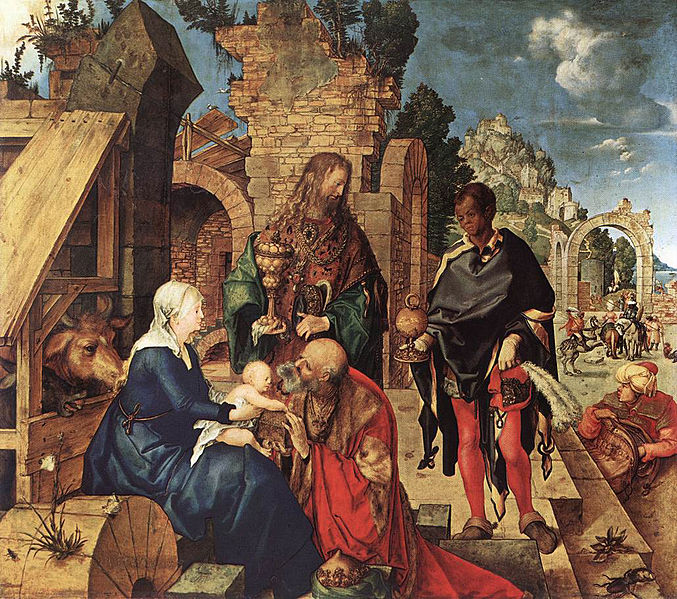by Rev. Jonathon T. Krenz

They are, perhaps, the most sublime words Dr. Luther ever penned, and maybe you’ve even memorized them: “I believe that Jesus Christ, true God, begotten of the Father from eternity, and also true man, born of the Virgin Mary, is my Lord.”[1] If justification is the article upon which the Church stands or falls, the incarnation, that God became man in the person of Jesus, is foundational. Our Lord Jesus has two natures, divine and human, in one undivided person. He is fully divine, the eternally begotten Son of God, and fully man, born of the Virgin Mary. And for our justification to be accomplished, He must be both. He must be a man to suffer and die. He must be God for His death to count as payment for all the sins of all people. Luther puts it this way:
“We Christians should know that if God is not in the scale to give it weight, we, on our side, sink to the ground. I mean it this way: if it cannot be said that God died for us, but only a man, we are lost; but if God’s death and a dead God lie in the balance, His side goes down and ours goes up like a light and empty scale. Yet He can also readily go up again, or leap out of the scale! But He could not sit on the scale unless He became a man like us, so that it could be called God’s dying, God’s martyrdom, God’s blood, and God’s death. For God in His own nature cannot die; but now that God and man are united in one person, it is called God’s death when the man dies who is one substance or one person with God.”[2]
Christmas brings the good tidings that God is on the scale for us in this Child born of Mary. “And the Word became flesh and dwelt among us” (John 1:14 ). “For unto you is born this day in the city of David a Savior who is Christ the Lord. And this will be a sign for you: you will find a baby wrapped in swaddling cloths and lying in a manger” (Luke 2:11-12).

In Luther’s Christmas preaching, he delights in the ordinariness and humility of the Savior’s birth, and finds great comfort in it. The humanity of Jesus makes God accessible. “Are you affrighted?” Luther asks, “Then come to him, lying in the lap of the fairest and sweetest maid. You will see how great is the divine goodness, which seeks above all else that you should not despair. Trust him! Trust him! Here is the Child in whom is salvation. To me there is no greater consolation given to mankind than this, that Christ became man, a child, a babe, playing in the lap and at the breasts of his most gracious mother. Who is there whom this sight would not comfort? Now is overcome the power of sin, death, hell, conscience, and guilt, if you come to judge this gurgling Babe and believe that he is come, not to judge you, but to save.”[3]
God clothes Himself in flesh to place Himself in the balance over against our sin, thus we are justified. But there is also this great comfort. God clothes Himself in flesh that we may approach Him without fear, in faith that this little Baby is the God of heaven and earth, and is our Savior who loves us and is one of us.

This is what it means to believe and confess this eternally begotten Son of the Father, born in time of the Virgin Mary, to be “my Lord.” To have a Lord, Luther says, is to believe that “He has redeemed me from sin, from the devil, from death, and from all evil.”[4] To have the Christ-Child as Lord is to have the God who puts His skin in the game to save you, a flesh and blood God who dies the accursed death of the cross and is risen, bodily, from the dead on the Third Day; who has ascended into heaven, bodily, and bodily sits at the right hand of the Father, living and reigning with Him and the Holy Spirit, one God, now and forever. To have the Christ-Child as Lord means that you are reconciled to God who loves you and bids you call upon Him as “Father,” who hears your prayers and answers for Jesus’ sake, who provides for all your needs and delivers you in the day of trouble.

Indeed, for Luther, “The manger and the cross are never far apart.”[5] This Babe is born to die, for you. He is born into our misery and helplessness to redeem us from it. He is born in our flesh to redeem us for Himself. He is born to bridge the gap between sinful man and God. He is born the Son of Mary, that by His suffering and death and resurrection, we may be sons of God. Our God is a man who steps into the scale and dies. And so we live.
The Rev. Jonathon T. Krenz is pastor of Messiah Lutheran + Moscow Mission (soon to be Augustana Lutheran Church) in Moscow, Idaho.
[1] Luther’s Small Catechism (St. Louis: Concordia, 1986).
[2] On the Councils and the Church, quoted in the Formula of Concord: Solid Declaration VIII:44, Concordia: The Lutheran Confessions, McCain et al., Eds. (St. Louis: Concordia, 2005, 2006) pp. 588-89
[3] Roland H. Bainton, Ed., Martin Luther’s Christmas Book (Minneapolis: Augsburg, 1948) Kindle Location 275 of 593.
[4] LC II:II:27, McCain, p. 401.
[5] Bainton, Kindle Location 59 of 593.